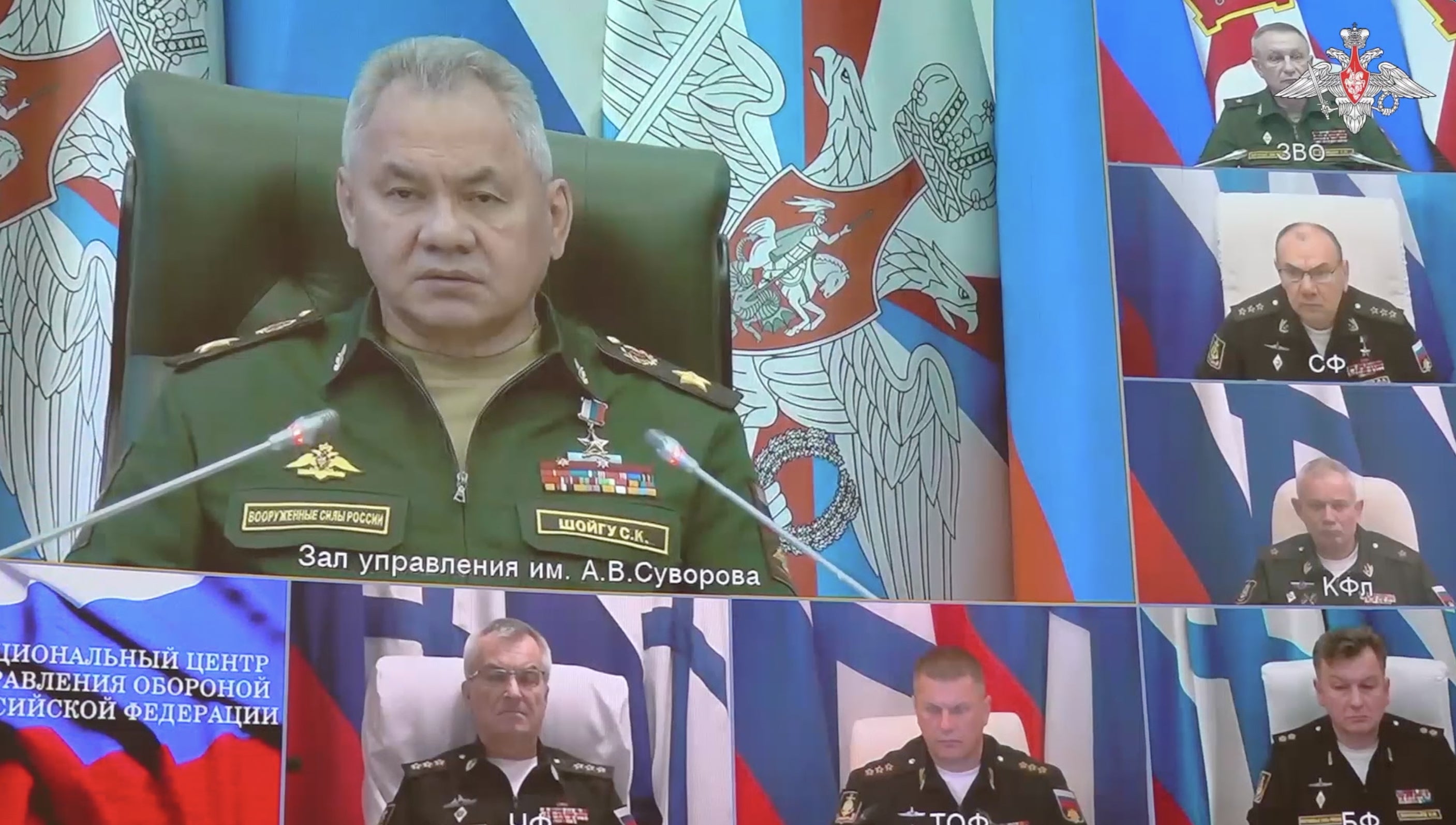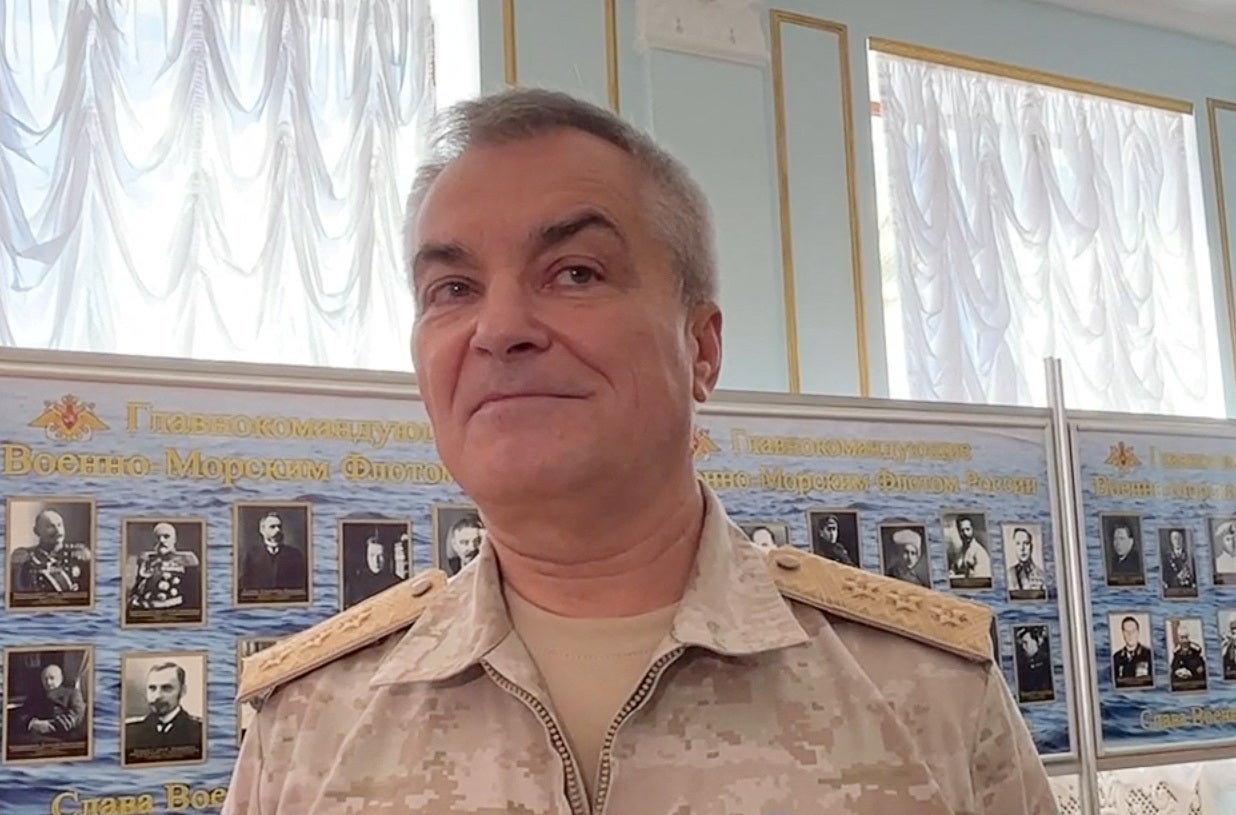Russia airs ‘new interview’ of Black Sea admiral who Ukraine claimed was killed in strike
Admiral Viktor Sokolov appears in new but undated video on Russian TV
Russia has published a second clip purporting to show a top naval officer alive and well, after Ukraine claimed he had been killed in a missile strike on the headquarters of Moscow’s Black Sea Fleet in Crimea.
Ukraine’s special forces claimed on Monday that the Russian fleet’s commander, admiral Viktor Sokolov, was among 34 officers killed in the huge strike on Sevastopol, which they said had caused irreparable damage to the headquarters building.
But the military body backpedalled the following day, saying its units were “clarifying the information” which had been based on open sources, adding that many of those killed in the strike “still have not been identified due to the disparity of body fragments”.

Kyiv’s special forces said the clarification came after Moscow was “urgently forced to publish an answer with an apparently alive Sokolov” – a reference to footage published by Russia’s defence ministry showing Mr Sokolov appearing on a video conference call with defence minister Sergei Shoigu.
Admiral Sokolov is also seen on a video screen but in a different location, with only a flag seen in the backdrop behind him. He is also not heard speaking in the video.
While this appears to be a signal from Moscow that the admiral is still alive, Russia has not released any details to prove when the video conference took place.
In a further twist on Wednesday, Russian defence ministry-linked outlet Zvezda published footage it claimed showed Mr Sokolov speaking to reporters while attending an award ceremony for the Chernomorets Black Sea Fleet football team.
But doubts were cast over whether the footage was new, given that Mr Sokolov made no reference to the Black Sea attack in his comments.

“The Black Sea Fleet confidently and successfully fulfills the tasks assigned to it by the command,” he can be heard saying in the footage, adding that the exploits of Russia’s marines “practically do not appear on the screens of central television”.
While Moscow has not commented directly on Mr Solokov’s status, defence ministry spokesperson Maria Zakharova claimed on Wednesday that there was “no doubt” the attack was “planned in advance using Western intelligence means, Nato satellite assets and reconnaissance planes”.

The strike on annexed Crimea “was implemented upon of the advice of American and British security agencies and in close coordination with them”, Ms Zakharova claimed.
Ukraine has previously refrained from directly claiming responsibility for strikes on targets in Crimea and Russia for fear of alienating Western allies concerned that such strikes could allow Moscow to claim them as evidence of Nato-sanctioned escalation.
However, Kyiv has become bolder in claiming such attacks as part of its wider counteroffensive efforts in recent months, having increased its use of domestically-produced attack drones to strike targets in Moscow, Belgorod and Crimea.
In its earlier update on the Sevastopol strike, Ukraine’s special forces said the air force fired 12 missiles on the Black Sea Fleet headquarters as it targeted areas where personnel, military equipment and weapons were concentrated.
Two anti-aircraft missile systems and four Russian artillery units were hit, special forces said.
Moscow-installed authorities in Sevastopol, annexed by Russia in 2014, are reported to be taking extra defensive measures in the face of Ukraine’s increased attacks on Crimea in recent days.
Sevastopol is a critical region providing a platform from which Russia has launched many of its air attacks on Ukraine in the 19-month-long war.
Join our commenting forum
Join thought-provoking conversations, follow other Independent readers and see their replies
Comments


Bookmark popover
Removed from bookmarks